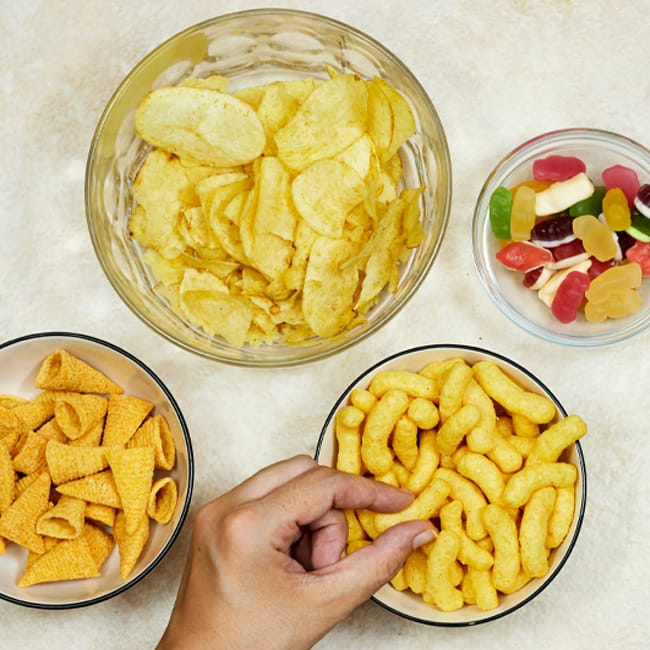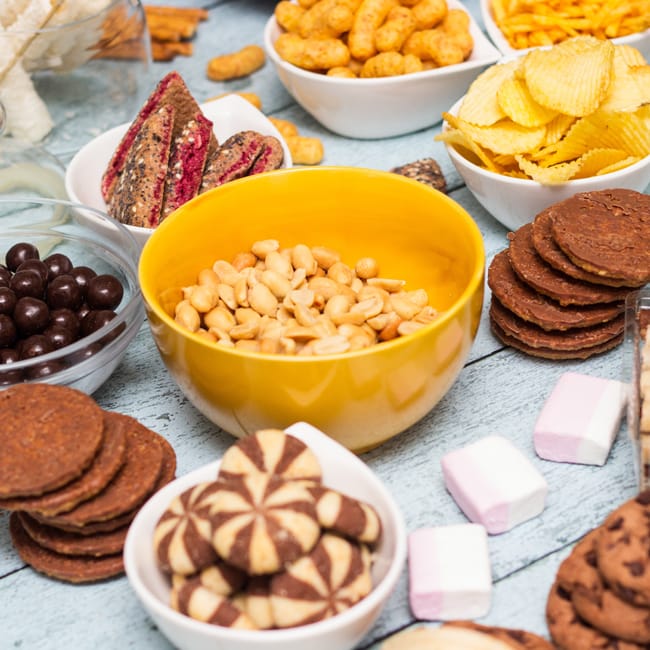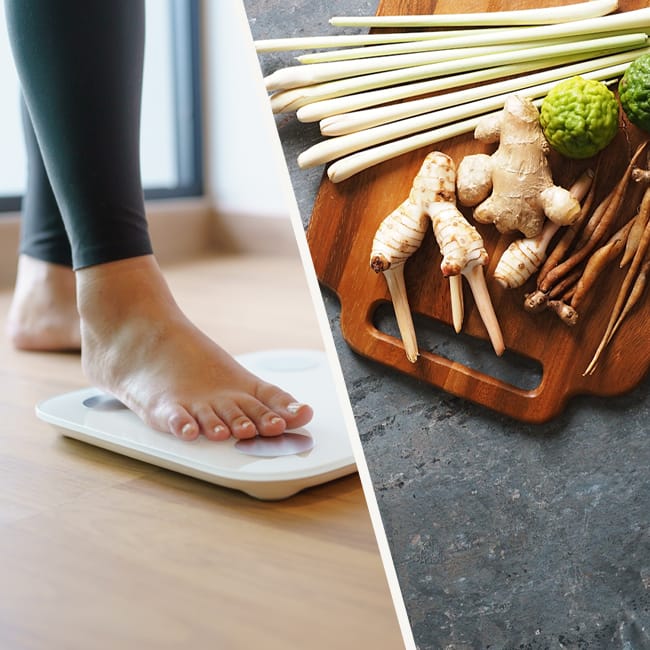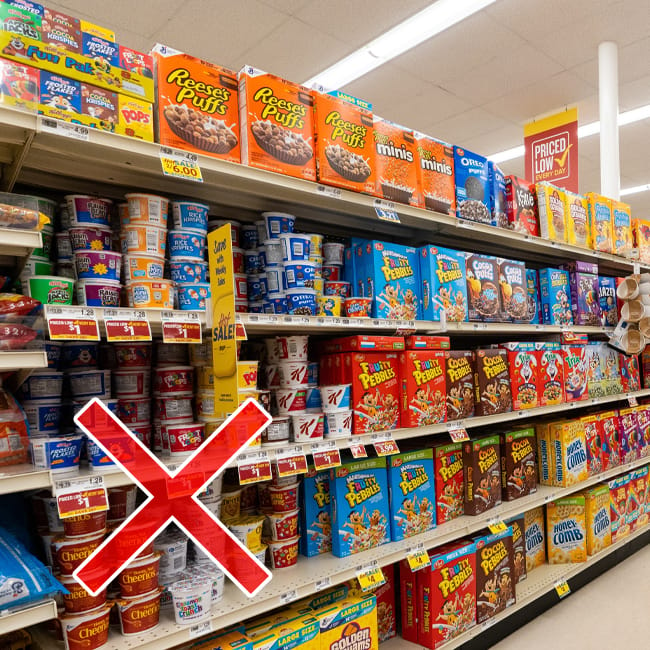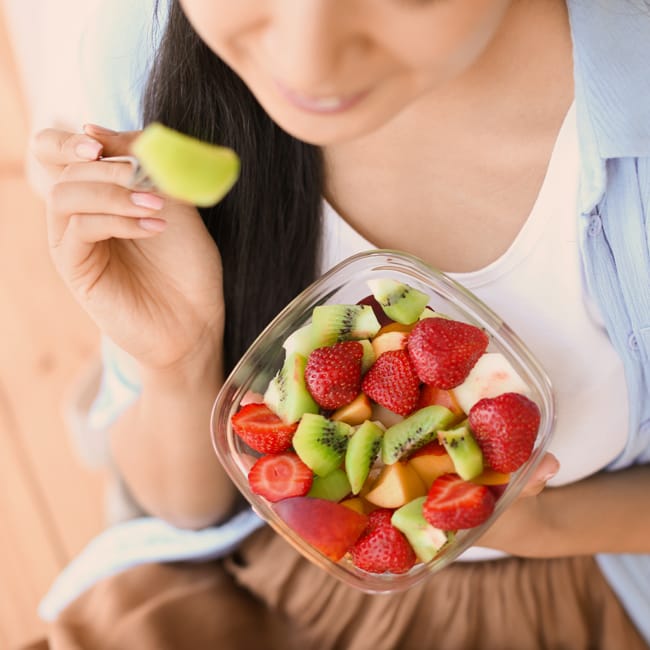Frozen meals have become a convenient solution for those seeking a quick and easy dining option. These ready-made dishes offer time-saving advantages and often boast nutritional benefits. However, within the world of frozen meals, there exists ultra-processed frozen meals, characterized by a high degree of industrial processing and the inclusion of various additives. While convenient, some of these ultra-processed options may contribute to weight gain due to their potential for high levels of added sugars, unhealthy fats, and excessive calorie content.
We spoke with Heather Davis, RDN and LDN at Nutrisense, to learn about the one type of ultra-processed frozen food you should stop eating due to it’s negative affects on weight management. Davis revealed that any type of frozen meal that is high in added sugars, trans fats, and/or sodium is the one you want to cut out for your weight loss journey.


Ultra-Processed Frozen Meals
Ultra-processed frozen foods, laden with added sugars, trans fats, and excessive sodium, pose a significant risk when it comes to weight gain.
These components, often used to enhance flavor and extend shelf life, can contribute to an imbalance in caloric intake and nutrient quality. Excessive added sugars, for instance, not only contribute empty calories but also trigger cravings and disrupt the body's natural hunger cues.
"Eating foods high in added sugars may mean creating an energy imbalance where you’re taking on more calories than you can burn in a day. On top of that, diets high in added sugars can contribute to a higher incidence of chronic conditions like insulin resistance or diabetes. The recommendation is to stick to no more than 25 grams of added sugars a day for women and 36 grams per day for men, yet some frozen meals have up to 15-18 grams in one meal," Davis says.
She also adds that it's important to exercise caution regarding trans fats. The advised practice is to minimize trans fat consumption, aligning with the American Heart Association's recommendation that trans fats should contribute to no more than 1% of total calorie intake.
"Trans fats not only increase the risk for certain conditions like atherosclerosis, but they also have been shown to contribute to weight gain, particularly abdominal adiposity, even when calorie intake is appropriate. To look for trans fats on a nutrition label, look for the term “partially hydrogenated oils” under the ingredients list," Davis notes.
Excessive sodium intake in our diets may result in the retention of water weight, potentially influencing the readings on the scale. "Try to look for frozen meals that have no more than 600-700 milligrams of sodium per serving."
Furthermore, frozen meals predominantly composed of starchy foods, such as pasta or grain bowls lacking substantial protein or vegetables, may result in a higher calorie intake than desired. Additionally, such meals could contribute to an undesirable spike in glucose levels.
"Frequent high glucose spikes will trigger more insulin to be released in order to help move that glucose into our cells. Since insulin is our body’s primary anabolic (or “building”) hormone, when we have too much insulin in our system, that can create a situation where our body is trying to store fat rather than burn it, potentially contributing to more weight gain/fat storage," Davis says.

Healthier Alternatives
When selecting frozen meals, opt for those with a well-rounded combination of vibrant vegetables and a protein source, complementing the grain or starchy components.
Davis suggests, "A good rule of thumb is to try to get as close as you can to a plate that is ½ non-starchy veggies, ¼ protein, and ¼ grain/starchy veggies. Choosing meals that have a whole grain source over a refined grain (for example, quinoa over white rice) may also offer some additional nutrients to create a more balanced meal."








